From land occupations to Prasa corruption, but also some good news featuring ordinary South Africans.

Dam levels were perilously low in Cape Town for much of the first half of 2018. Day Zero made headlines across the world. A huge water-saving effort and good winter rain have brought at least two years’ respite. But plans to increase the future supply of water to the city remain vital. Those plans need to cater for the thousands who have to stand in queues daily to collect a meagre amount of water, as they battle Day Zero-like conditions.
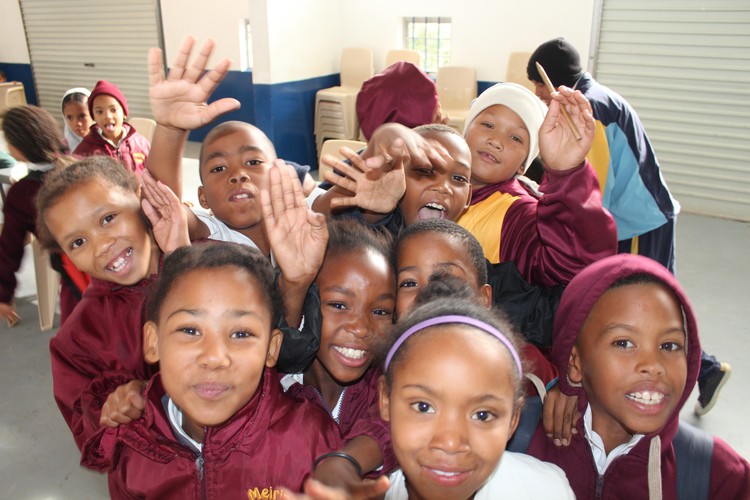
Children at the Path Out of Poverty centre in Riebeek Kasteel just after eating, before settling down for learning exercises. We told the story of Goedgedacht — which means “good thinking” — a South African success story that is helping rural children play sport, do homework, improve their social skills and eat nutritiously. Photo: Aidan Jones

GroundUp exposed a dodgy deal for guarding the Helen Bowden Nurses’ Home. Several hundred people have occupied the property since March 2017. The security company’s dogs, one of whom is pictured above, made playful pets but ineffectual guard-dogs. Photo: Ashraf Hendricks

Nombi Arosi sits in the ruins of her shack which was demolished by officials. Her building materials were confiscated. “I’m heart-broken. I don’t know where I will stay now,” she said. Photo: Vincent Lali
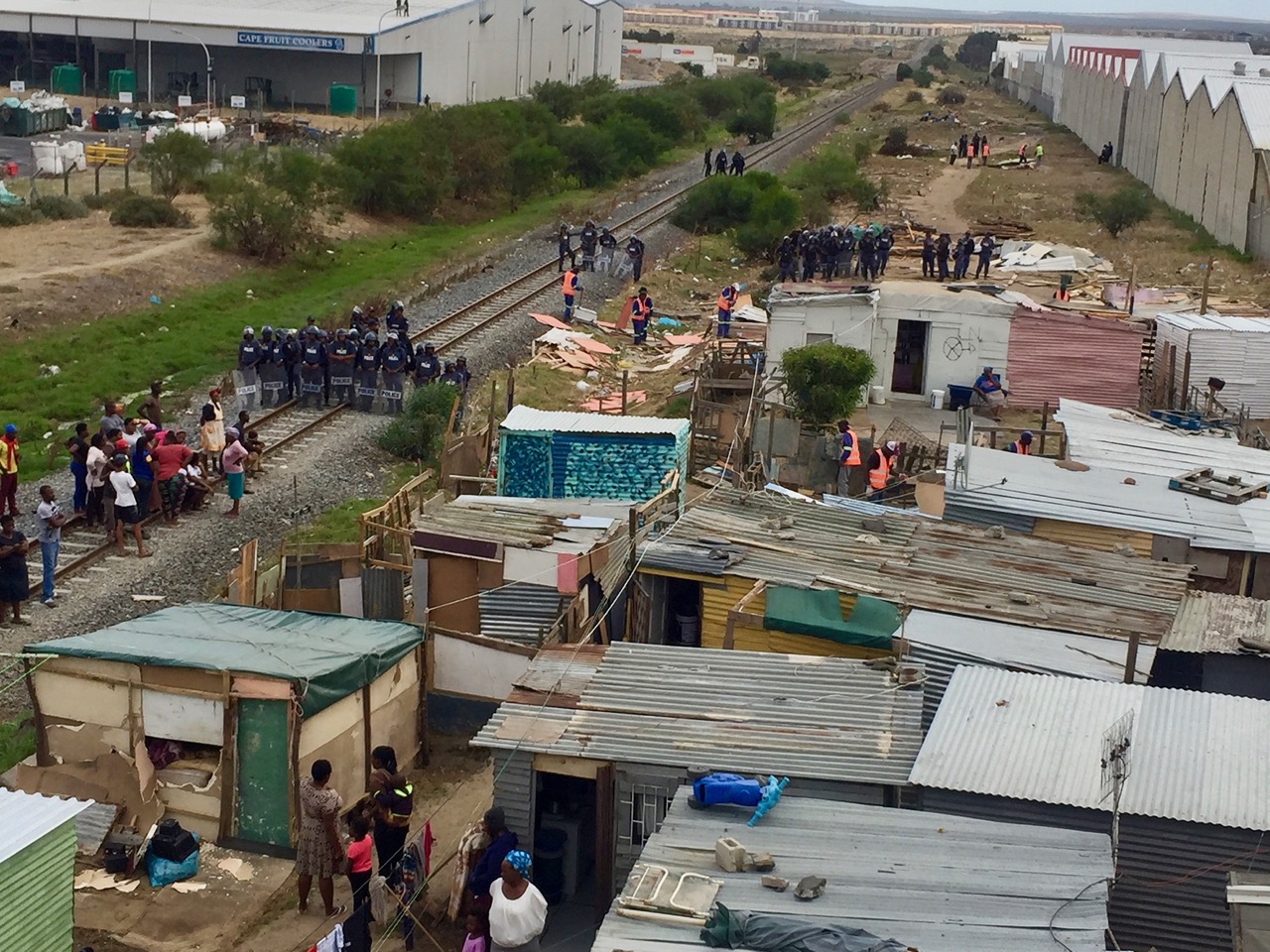
Riot police form a chain barring Dunoon residents from shacks they built on vacant land. Photo: Peter Luhanga
Land occupations increased dramatically in 2018. GroundUp covered occupations in Dunoon, Khayelitsha, Philippi, Cato Crest and Brakpan. Reclaim the City continued its audacious occupationof two large state-owned buildings near Cape Town’s city centre.
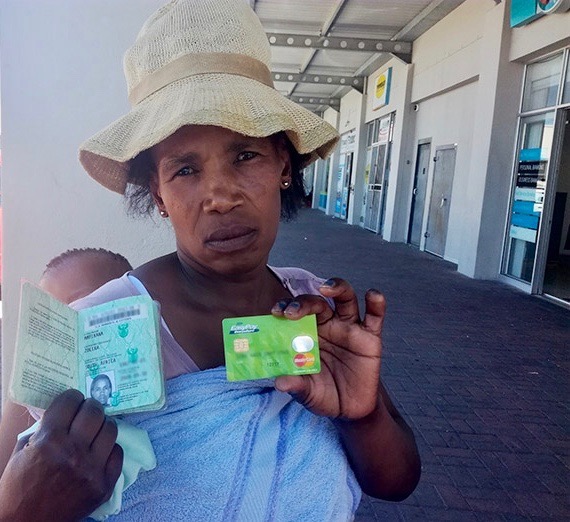
Zoleka Mapikana waits outside the Net1 Moneyline office at Philippi Plaza. She holds a green EasyPay Everywhere card given to social grant beneficiaries who take out a loan with a Net1 subsidiary. Photo: Barbara Maregele
The Post Office took over the payment of most social grants this year. This was after the Constitutional Court ordered the South African Social Security Agency (SASSA) to cut ties with Net1 subsidiary Cash Paymaster Services (CPS). For the past six years, CPS had been paying grants on behalf of SASSA. Will the Post Office do a good job? It remains to be seen. There have been some serious teething problems.
It was not a good year for former Minister of Social Development Bathabile Dlamini. The Constitutional Court found her personally liable for 20% of grant payment litigation costs. The National Prosecuting Authority may also bring perjury charges.
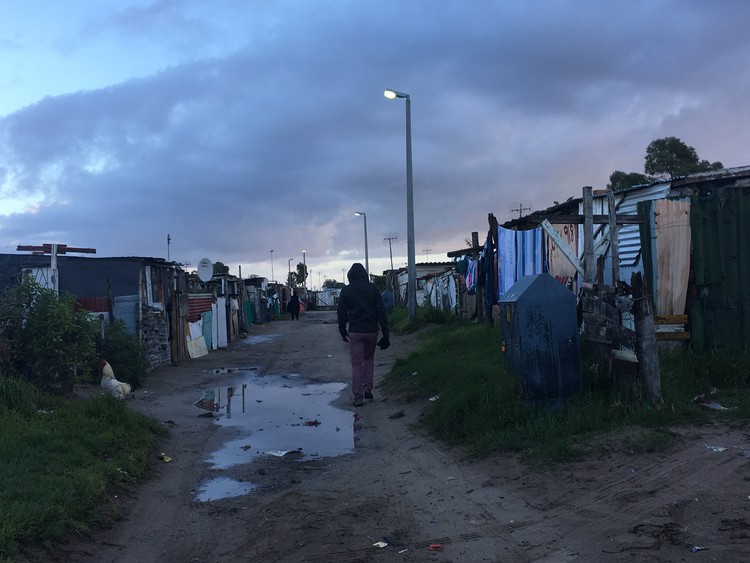
In Masakhane, Gansbaai, one wet Tuesday morning, an abalone poacher waits for a lift to the sea. Photo: Kimon de Greef
In May, Mortimer Booysen, a Hout Bay man who poached abalone for a living, was killed in unclear circumstances when police chased the boat he was on. This story raised troubling questions about the history of poaching in the Western Cape, and the state’s approach to poaching.
These questions were compounded by GroundUp’s exposé on the culture of corruption and in-fighting at the Department of Fisheries and Forestries, including the theft of millions worth of poached abalone that was supposed to be auctioned.

Natania Nitzky from Mitchells Plain with her sparring partner and instructor, Cobe Jephte. Nitzky is among seven students selected for a martial arts tournament in India in December. Photo: Barbara Maregele

At the end of the Border War, Angolan members of 32 Battalion were moved to Pomfret. Photo: Shaun Swingler
Implicated in human rights abuses during the last years of apartheid, 32 Battalion veterans and their families have been left in limbo in the military town of Pomfret. Living in abject circumstances, they have endured broken promises and face an uncertain future.
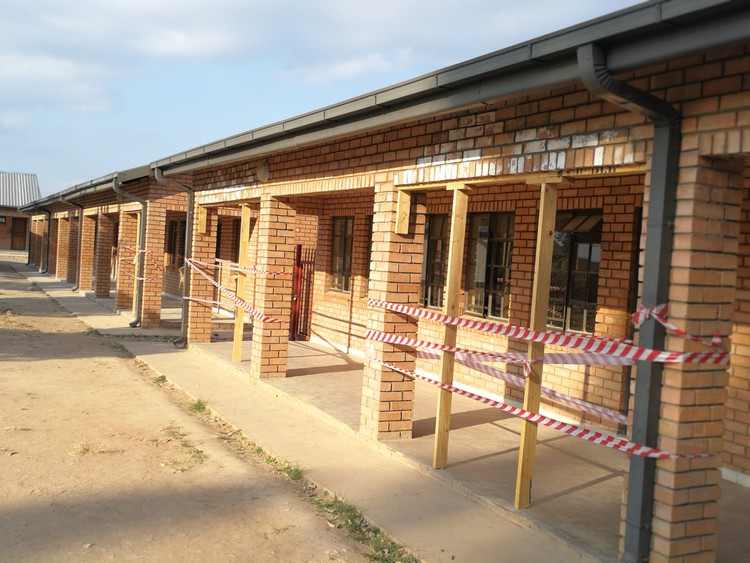
Vhafamadi High School in Limpopo was built with Lottery money, but the tenders went to dodgy contractors who did a poor job. Photo: Raymond Joseph
The Lottery was controversial for targeting poor people from the day it started. But the counter-argument was that it would be used for pro-poor projects. We ran a series of stories this yearexposing projects gone bad and corruption.

Tristan Manh (14) from Mitchells Plain hoists a barbell during a weight lifting competition. Mitchells Plain Powerlifting Club hosted the competition for the township’s Open Streets celebration. Photo: Ashraf Hendricks
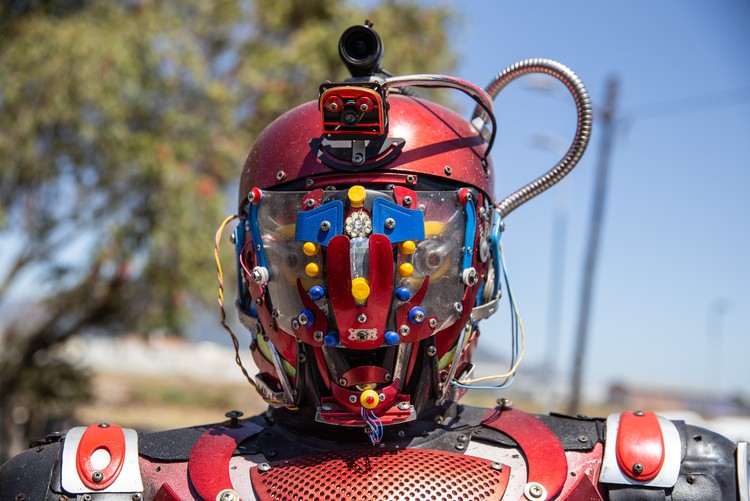
Robot 5 was built entirely from scrap, says Hoosain Dixon. Dixon is an Athlone artist who specialises in buildingrobots. Photo: Ashraf Hendricks
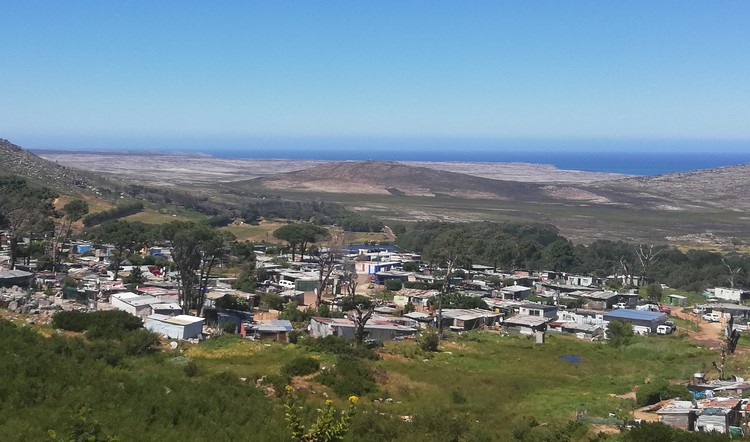
Residents of Redhill near Simon’s Town in Cape Town have been waiting for years for government housing. Photo: Thembela Ntongana
“When Mandela was released from prison in 1994 I was staying in this place and had been here for years.” Sixty-six-year-old shack dweller Nowethu Ngxangana is one of hundreds of Redhill residents hoping for a house in the new Dido Valley housing project.
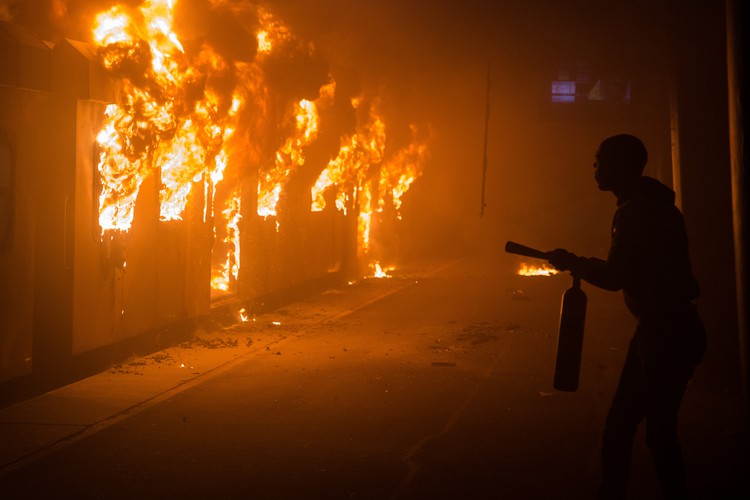
The 2017 trend of train arson (when this photo was taken) continued this year, with dozens of carriages burnt beyond repair. Photo: Ashraf Hendricks
New forensic reports, by Werksmans, on corruption at PRASA were leaked to commuter activist group #UniteBehind and handed to GroundUp. The reports have been sitting with Parliament for most of the year; it’s unclear why they have not been officially released. The reports continue to paint a picture of grand-scale corruption at the state-owned enterprise. In particular, they show why security on Metrorail has collapsed. They implicate one of Jacob Zuma’s key backers, Roy Moodley.
Originally published on GroundUp.
For more news your way, download The Citizen’s app for iOS and Android.








